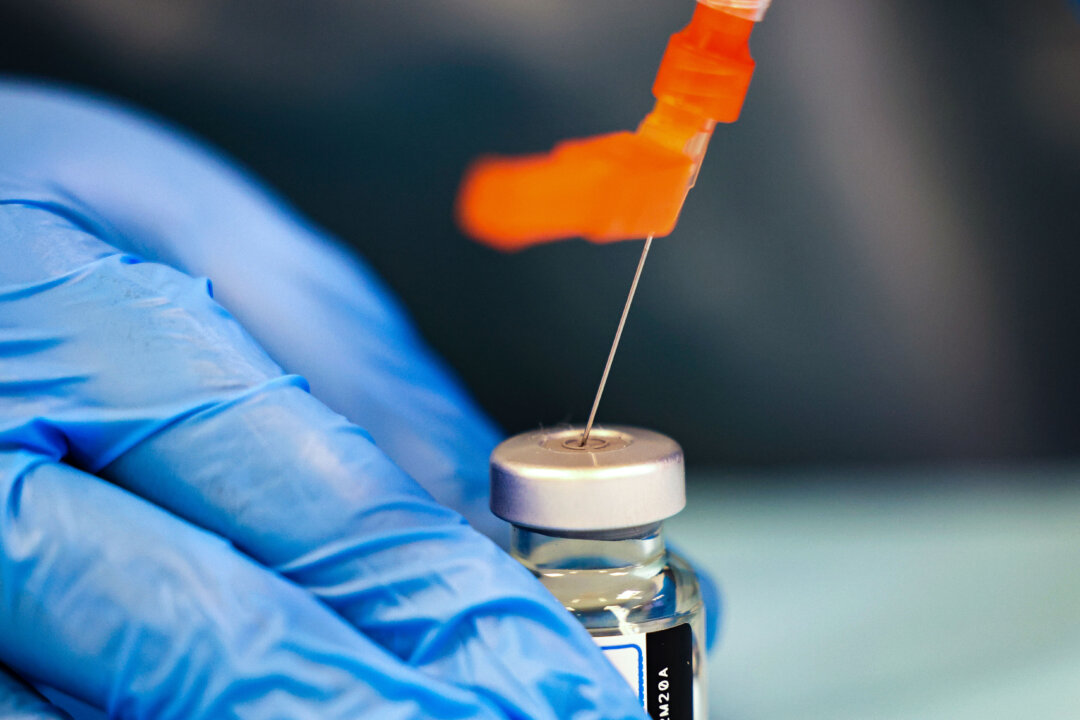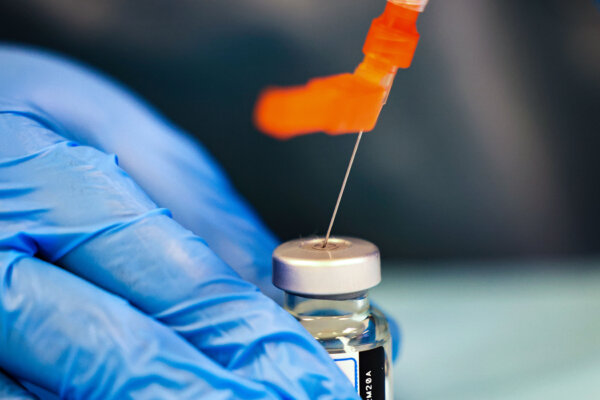FDA Changes Course, Advises Updated COVID-19 Vaccines Target KP.2 Strain
Decision runs counter to recommendations from agency’s advisers.
The U.S. Food and Drug Administration (FDA) on June 13 changed course and recommended COVID-19 manufacturers target the KP.2 virus strain in their next round of shots.
The regulatory agency had said earlier this month it was following advice from its advisers and directing manufacturers to target the JN.1 variant.
The change “is intended to ensure that the COVID-19 vaccines (2024-2025 Formula) more closely match circulating SARS-CoV-2 strains,” the regulators said. SARS-CoV-2 is the virus that causes COVID-19.
The change is “based on the most current available data, along with the recent rise in cases of COVID-19 in areas of the country,” the FDA said in a statement.
The regulators, though, said manufacturers could choose whether or not to target KP.2, a sublineage of JN.1.
That likely means consumers will be presented with different vaccines in the fall, which the FDA’s Vaccines and Related Biological Products Advisory Committee advised against.
“I do think about some potential for confusion, particularly if there were different variants included in different vaccines,” Dr. Archana Chatterjee, one of the advisers, said during the committee’s recent meeting. “There’s enough confusion already about this vaccine.”
Pfizer and Moderna, which produce modified messenger ribonucleic acid (mRNA) vaccines, have said they can produce vaccines targeting KP.2 or JN.1. However, Novavax, which makes a protein-based vaccine, has said it developed a JN.1 vaccine and would not be able to shift to a KP.2-based product in time for the fall. Protein-based vaccines require more manufacturing time than mRNA shots.
JN.1 was displaced in May in the United States by KP.2 and KP.3, two sublineages, according to estimates from the U.S. Centers for Disease Control and Prevention. As of June 8, KP.3 was responsible for a quarter of the cases in the United States, and KP.2 was responsible for 22.5 percent of the cases in the country, according to the estimates.
The strains LB.1 and XDV.1 are also on the rise.
Advisers had noted that by the time the vaccines are available in September, the circulating strains might be different. That’s one reason they recommended targeting JN.1.
“If we’re going to stick with a monovalent for now, the trunk of the tree is the best bet,” said Dr. Bruce Gellin, another adviser.
Some advisers said they thought the new vaccines should contain multiple strains, but FDA officials rejected that advice and said the new shots will be monovalent.
New Studies
The U.S. Department of Health and Human Services, meanwhile, announced Thursday it is committing $500 million for clinical trials evaluating experimental vaccines against COVID-19. [delete]
The vaccines are administered as a nasal spray or a pill, while the shots on the market are administered by needle.
The bulk of the money is going to California-based Vaxart, which is developing a pill vaccine.
New York-based Castlevax and Georgia-based Cyanvac are also receiving funds for their intranasal vaccine candidates.
“We are making progress on the development of cutting-edge treatments, such as vaccines administered as a nasal spray or as a pill,“ Health Secretary Xavier Becerra said in a statement. ”The Biden-Harris Administration won’t stop until we have the next generation of innovative vaccines, therapeutics, and other tools to protect against COVID-19, or any other pathogen that could threaten the American public.”






